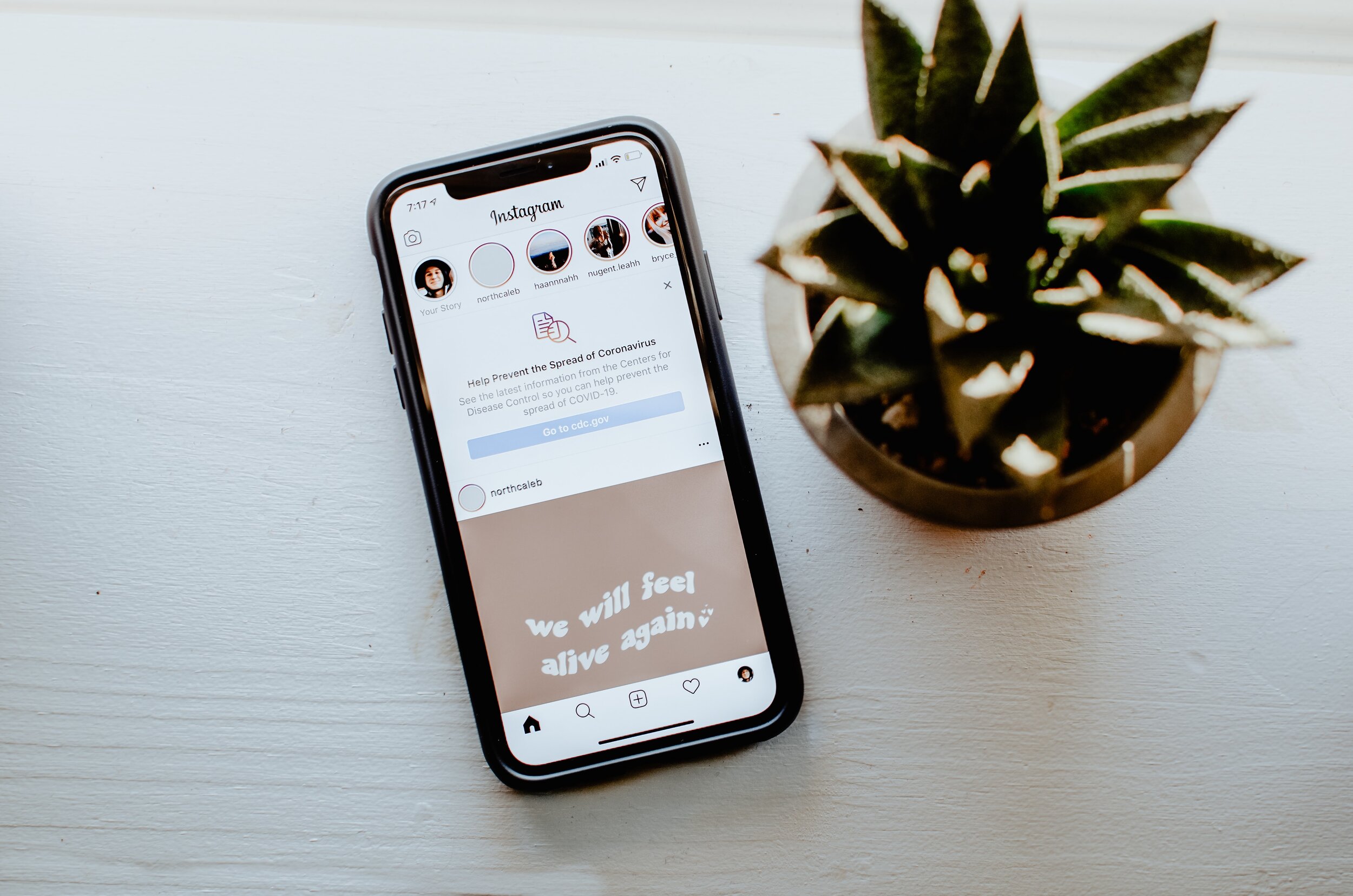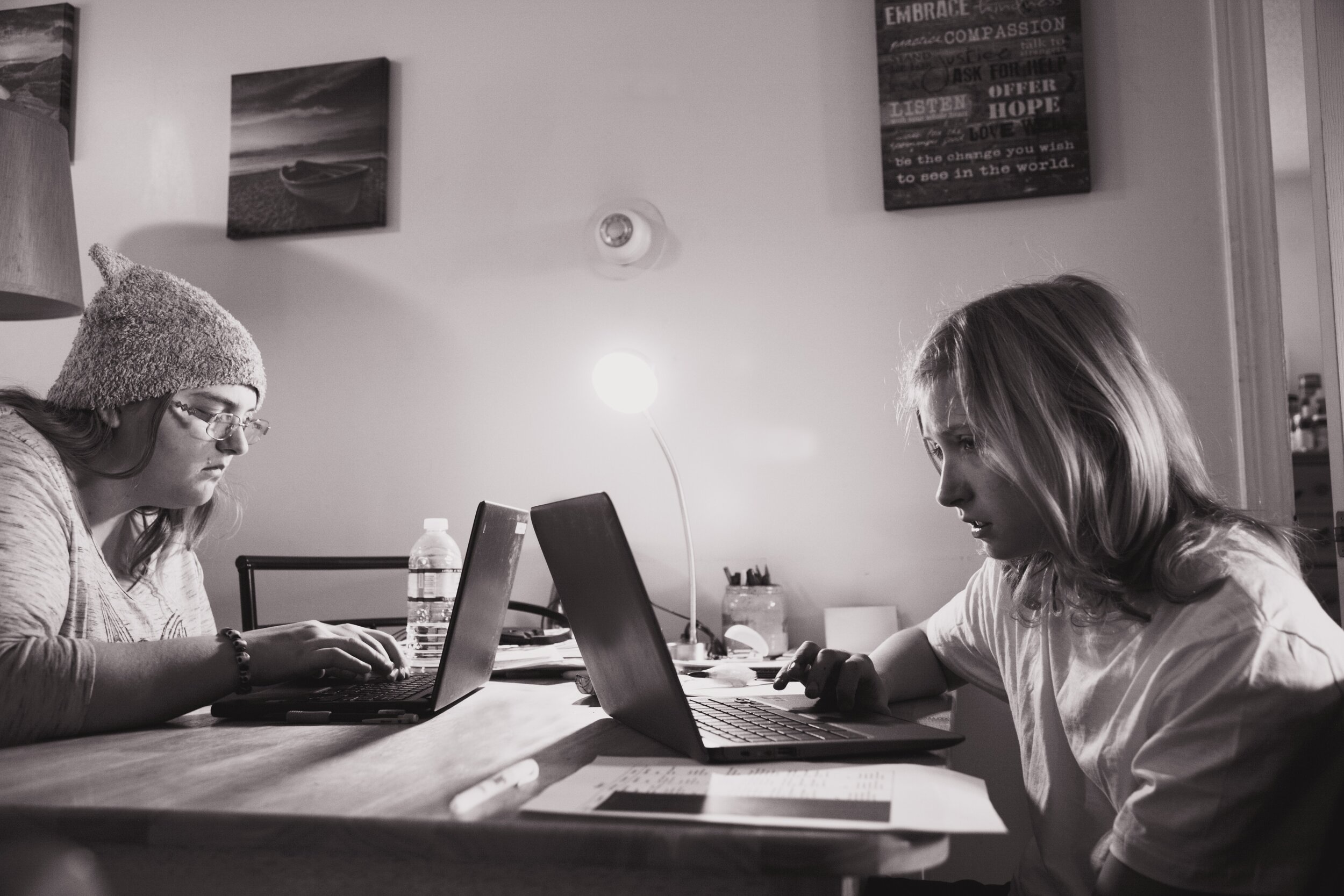Empowering Yourself with Mindfulness: Attending Intentionally to What Matters in This Moment
Jill Stoddard
By Annabelle Parr
We wake up each day to a new series of updates about coronavirus and its wide reaching effects: perpetually breaking news stories with new research, new statistics, new predictions, new guidelines, new stressors. Our attention is yanked like a yo-yo by the instant and constant stream of news in the palms of our hands. Additionally, attending to what used to be a basic task – grocery shopping – now feels like a massive feat involving lots of planning and caution. For those with kids at home, we are trying to attend to their needs, their schoolwork, and their emotions, even as we do our best to navigate working simultaneously.
Where we used to have separate spaces for separate parts of our lives, at least to some degree, we are now navigating the jumble of integrating every facet of our lives into one space: our home. With so many demands and pressing issues competing for our attention constantly, it’s easy to feel overwhelmed. It’s easy to feel like our minds have been hijacked in the same way that it feels our lives and routines have been.
This is hard, AND…
Yes, this is a scary and difficult time. Yes, there is a seemingly endless list of stressors to occupy our anxious minds. Yes, there is a lot of uncertainty and only so many variables within our control. AND. We are not helpless or powerless. As our hearts are flooded with emotions, our minds retain their ability to make choices about how to proceed when faced with the facts and the resulting feelings. We can choose to empower ourselves within situations in which our control over external variables is limited.
What does it mean to empower ourselves during COVID-19?
When I say that we can empower ourselves, I don’t mean that we can empower our way out of our pain. Our pain – our fear, our anxiety, our grief, our anger – is a natural human response when faced with loss and uncertainty, of which we are all getting an enormous dose. Our pain simply is. It is here for good reason, and it often points directly toward what matters most to us. It deserves to be felt and heard.
Empowering ourselves involves increasing our psychological flexibility in service of greater meaning.
When I say that we can empower ourselves, I am drawing on the wisdom of Acceptance and Commitment Therapy (ACT), which says that suffering is a result of psychological inflexibility. When we increase our ability to think and respond flexibly in the face of pain and stress, we empower ourselves to make choices based on our values. We reduce the struggle that comes from fighting with our pain – as if that were the battle to be won – and we free ourselves up to pursue that which brings meaning to our lives.
In his beautiful work Man’s Search for Meaning, Holocaust survivor, psychiatrist and creator of logotherapy (another form of therapy grounded in meaning), Viktor E. Frankl (1959) stated “that everything can be taken from a [person] but one thing: the last of the human freedoms – to choose one’s attitude in any given set of circumstances, to choose one’s own way” (p. 66).
What if I feel guilty for focusing on meaning when basic needs demand my attention?
It may feel incredibly difficult or even indulgent to consider what brings us meaning when we are facing such a collective threat to our health and our financial stability. It may also feel trivializing to invoke the words of a Holocaust survivor here, as even though what we are facing is difficult, it is nowhere near the level of the atrocities which Frankl witnessed and endured.
Yet he suffered such unfathomable horror, pain, and loss, that the wisdom he emerged with certainly seems worth attending to during our own trying times. Additionally, suffering is not something that is meant to be compared. Frankl (1959) himself noted, “suffering completely fills the human soul and conscious mind, no matter whether the suffering is great or little. Therefore, the ‘size’ of human suffering is absolutely relative” (p. 44).
In other words, we do not have to experience the rock bottom of human atrocity in order to allow ourselves space and self-compassion for our emotional experience in the midst of suffering. This is hard. Your pain makes sense.
An important piece of the psychological flexibility puzzle is mindfulness.
So, how exactly do we empower ourselves to become more psychologically flexible? A good place to start is with mindfulness, or present centered awareness. Jon Kabat-Zinn (1994), founder of mindfulness-based stress reduction, succinctly defines mindfulness as the ongoing practice of “paying attention in a particular way: on purpose, in the present moment, and non-judgmentally” (p. 4).
In her book, Be Mighty: A Woman’s Guide to Liberation from Anxiety, Worry, & Stress Using Mindfulness & Acceptance, CSAM director Dr. Jill Stoddard (2019) invites us to imagine that when we are not engaging mindfully, we are like airplanes on autopilot. Not fully present to what is happening inside and outside of our skin, we are running on muscle memory. We are still making choices for which we are responsible, but we are not totally conscious of the fact that we are doing so.
It is easy to get lost in this space. When we are running on autopilot, we are more likely to react rather than respond: “if your autopilot has commandeered the cockpit, the space between intense emotion and response is utterly nonexistent, leading to an instant, impulsive reaction. It’s as if the intense emotion is a detonator and the reaction is a bomb” (Stoddard, 2019, p. 45).
Sheltering in place during a pandemic is likely to create some intense emotions and difficult circumstances to which we may react. If we are on autopilot, we are much more likely to react in unhelpful ways, like lashing out at our loved ones and communicating ineffectively. Additionally, when we are on autopilot we may be unaware of what we are actually feeling and experiencing. We may be more likely to numb out in unhealthy ways, and less likely to attend to the things that help care for our minds and bodies. Also significant, we are likely to miss the little nuggets of joy that fly by us as we zone out into the distance.
So let’s flip it around. What does mindfulness empower us to do? When we show up to each moment mindfully, that is, we focus our attention on purpose, in the present moment, non-judgmentally, we are able to….
Notice and identify our emotions. Our emotions can span the full range of experience, from afraid to anxious to stressed to exhausted to angry to sad to grateful to joyful. Remember, the purpose of mindfulness is not to judge our experience, but simply to notice it.
Choose how we internally respond to our own emotional experience. Responding gently, with the same kindness and compassion we might have for ourselves as children, for our child, for our friend, or for another loved one is generally a good place to start.
Choose action in line with the kind of person, partner, parent, friend, employee, citizen, etc. that we want to be. It can be helpful to consider the qualities of being you aspire to embody, such as being compassionate, loving, loyal, diligent, reliable, kind, etc. Then you can purposefully choose to behave in a way that aligns with your personal values.
Choose what we point our attention towards. This is especially important right now, given that our smartphones are perpetually present and can alert us to every single news update all day long. It’s important to stay informed enough to stay safe and responsible, but that doesn’t mean we are required to be glued to the news all day. When we are more present, we can make a choice about when we decide to update ourselves, how often, and for what purpose. It’s also easy to mindlessly let the day slip away watching Netflix or going down some other rabbit hole of distraction. It’s okay to watch Netflix or to let ourselves be unproductive, but it’s important that we connect with our intention and our reason for our behavior. When we watch our favorite show mindfully, we get to actually engage with it from a place of enjoyment so that we can return to our other tasks more rejuvenated.
Be present to the things for which we are grateful. When we are more fully present to the moment, we give ourselves the opportunity to appreciate the sweetness in small moments we might otherwise miss. As much as this period of time is full of tragedy, there is goodness to be found if we know where to turn our attention. John Krasinski is working on helping us out here, with Some Good News. But we don’t need a celebrity news channel to tune in to gratitude and goodness. There is goodness to be found in the gift of time with our loved ones, watching our children play together, waving to neighbors from a solid 6 ft. + physical distance, or reconnecting virtually with friends we rarely find time to talk to under normal circumstances. Mindfulness allows us to be present to the joys when they show up and to actively cultivate engagement with the things that bring us meaning; we might just have to be a bit more creative in how we engage those things right now.
CSAM IS HERE TO HELP
If you or someone you love needs support and might benefit from cognitive behavioral therapy (CBT) or acceptance and commitment therapy (ACT) for anxiety, panic, phobias, stress, PTSD, OCD, insomnia, or stress related to COVID-19, or if you would like more information about our telehealth services, please contact us at (858) 354-4077 or at info@csamsandiego.com
References
Frankl, V. E. (1959). Man’s search for meaning. Boston, MA: Beacon Press.
Kabat-Zinn, J. (1994). Wherever you go there you are: Mindfulness meditation in everyday life. New York, NY: Hyperion.
Stoddard, J. A. (2019). Be mighty: A woman’s guide to liberation from anxiety, worry & stress using mindfulness & acceptance. Oakland, CA: New Harbinger.









